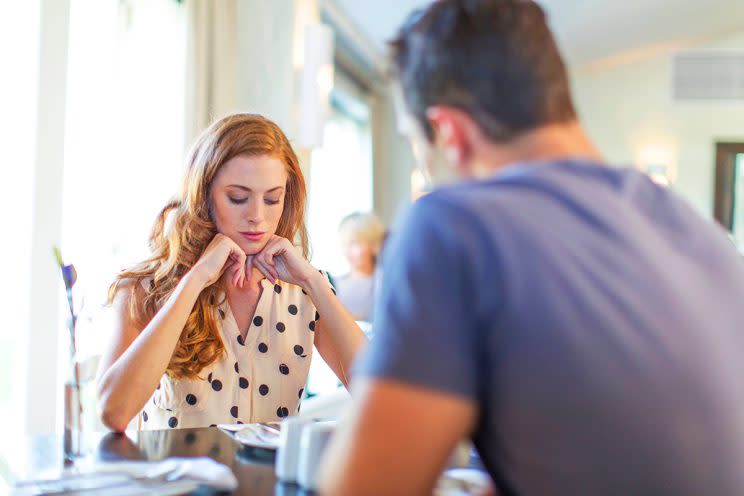This Restaurant Wants Patrons to Order a ‘Shot’ If They Feel Unsafe on a Date

The Iberian Rooster restaurant in St. Petersburg, Fla., is serving up more than just food and drinks to its guests — it’s also actively making itself a safe space for those potentially dealing with gender-based violence.
A sign in the restaurant’s restroom reads:
“Are you on a date that isn’t going well? Is your Tinder or Plenty of Fish date not who they said they were on their profile? Do you feel unsafe, or even just a tad bit weird?”
The sign then goes on to lay out a code that patrons can use to get subtle intervention from the restaurant’s staff to help circumvent a possibly dangerous situation.
Ordering an “angel shot” from a waiter or bartender allows patron to alert the restaurant’s staff that they feel in any way unsafe, and allows the staff to keep an eye out and intervene as necessary.
But that’s not all.
An angel shot neat means someone will escort you to your car, an angel shot with ice means the bartender will call the patron an Uber or taxi, and an angel shot ordered with lime means the restaurant will immediately call the police.
Iberian Rooster owner Russell Andrade tells the Tampa Bay Times, “The goal for this place was to be a safe place where people can go on a romantic date.” He adds that he and his staff decided to implement their safe space strategy after seeing the news from earlier this year about an East England rape crisis center that encouraged area restaurants and bars to notify patrons through a poster campaign that if patrons felt in any way unsafe, they could ask the staff for “Angela,” and would thus alert the staff that they were in need.
Sejal Singh, a policy organizer with the student-led activist group specializing in combating gender-based violence in school settings Know Your IX, tells Yahoo Beauty that she applauds what Andrade and the Iberian Rooster are doing to combat sexual aggression — and destigmatizing the act of asking for help.
Furthermore, Singh notes, the bar and restaurant industry is uniquely positioned to successfully intervene and prevent such violence.
“Research suggests that a perpetrator’s degree of intoxication has almost nothing to do with their level of sexual aggression — but there’s a strong correlation between a perpetrator’s aggression and a victim’s level of intoxication. That means bars and restaurants that are serving those drinks have a special responsibility to take action against perpetrators who are intentionally targeting drunk women, using alcohol as a tool of coercion,” she says.
She adds, “It’s great to see restaurants and bars stepping up. Code words are safe, discreet ways for patrons to ask for help if they feel unsafe on a date. Bars can also take the next step and proactively train their staff to be on the lookout for sexual aggression and to intervene.”
Singh concludes, “Sexual aggression is pervasive in bars and restaurants — it’s just another way in which women face harassment just for participating in public life. And all too often, harassment escalates into sexual assault. The growing “Safe Bars” movement trains bar staff, management, and customers to recognize sexual aggression and safely intervene if they see it. By training bar bystanders to intervene in a dangerous situation, we can prevent individual instances of sexual assault, and that’s an important service in and of itself. But bystander intervention, at its best, also teaches people to stand up against behavior that doesn’t rise to rape, but still degrades women — sexist comments, verbal harassment, being the arrogant dude who won’t stop sidling up to a woman, not matter how uninterested she is — and to take responsibility for changing a culture where sexual violence is normalized. It’s about preventing sexual assault, but also making bars and restaurants welcoming, safe environments for everyone.”
Let’s keep in touch! Follow Yahoo Beauty on Facebook, Twitter, Instagram, and Pinterest.
